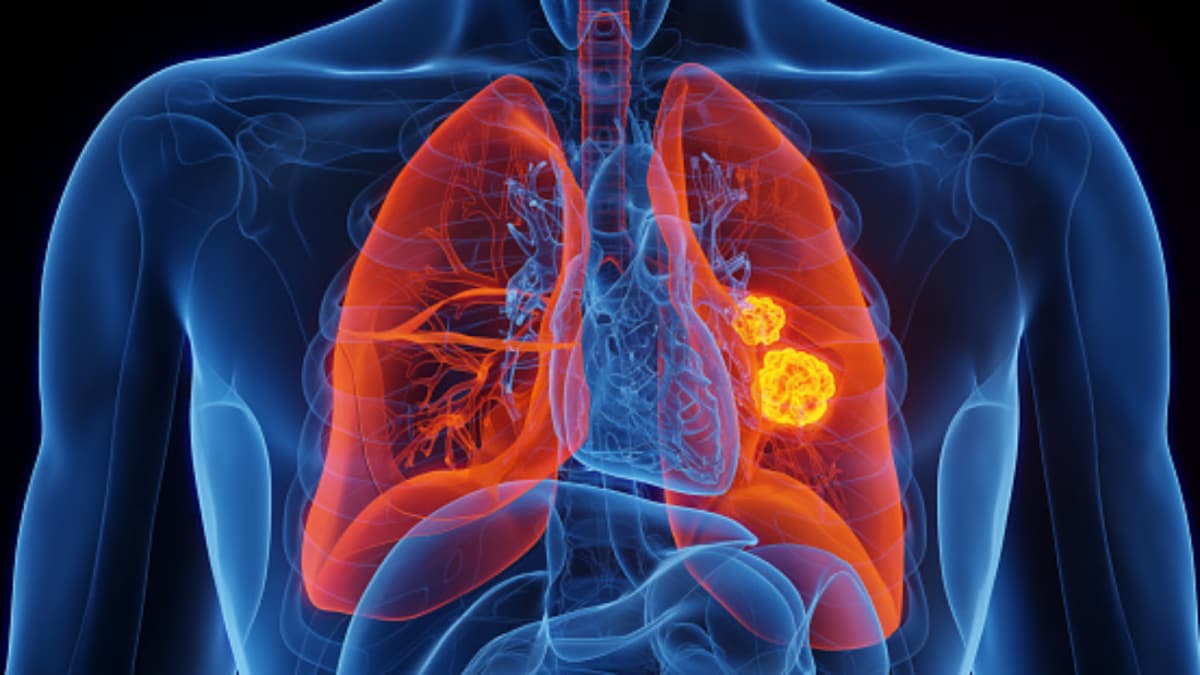Can You Get Lung Cancer Without Smoking? Oncologist Decodes The Risks

Last Updated:August 09, 2025, 19:01 IST
While tobacco use significantly increases the risk of lung cancer, it’s important to recognize that other factors may contribute to this complex disease.

Environmental and occupational carcinogens contribute to increasing the risk of lung cancer.
When most people think about lung cancer, the image of a cigarette immediately comes to mind. And while smoking remains the leading cause of lung cancer worldwide, the disease is not exclusive to smokers. In fact, many people who have never touched a cigarette still get diagnosed with lung cancer.
“Lung cancer is a multifactorial condition with a variety of causes,” explains Dr. Chetana Bakshi, Consultant Medical Oncologist, Jupiter Hospital, Thane. “Tobacco smoke is a major risk factor, but it is not the sole cause. Environmental exposures, genetics, and even certain medical treatments can also play a role,” she adds.
Beyond Cigarettes: Hidden Environmental Triggers
From toxic fumes to invisible gases, our surroundings often hide threats we can’t see. One of the biggest culprits is radon gas, a naturally occurring radioactive substance that seeps from the ground and can accumulate indoors. Odourless and tasteless, it can only be detected through specific testing, but prolonged exposure can severely damage lung tissue.
Air pollution, particularly in densely populated cities, also contributes to the risk. “Toxic particles from vehicles and industries are inhaled daily, and over time, this constant exposure can lead to significant harm,” says Dr. Bakshi.
Secondhand Smoke: The Silent Threat
Even without lighting up, being around smokers can be harmful. Prolonged exposure to secondhand smoke – whether at home, work, or in public – can significantly raise the risk of lung cancer. “This is why creating smoke-free homes and workplaces is crucial,” Dr. Bakshi emphasises.
The Role of Genetics and Medical History
Not all risks are environmental. Some individuals inherit genetic mutations that predispose them to lung cancer, even without traditional risk factors. Others may develop the disease due to pre-existing lung conditions or as a result of radiation therapy for other illnesses.
Prevention and Early Action Matter
Encouragingly, treatments for lung cancer have advanced in recent years. “Targeted therapies and immunotherapy have opened new doors for patients, especially those whose cancer isn’t linked to smoking. Early detection is still key as it can dramatically improve outcomes,” says Dr. Bakshi.
While avoiding smoking is still the most effective way to reduce risk, awareness of non-smoking-related causes is equally important. Testing homes for radon, reducing exposure to polluted air, maintaining smoke-free environments, and knowing your family history can make a significant difference.
view comments
- Location :
Delhi, India, India
[title_words_as_hashtags




